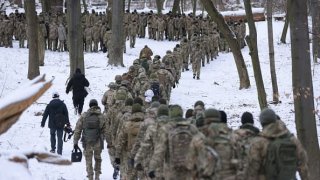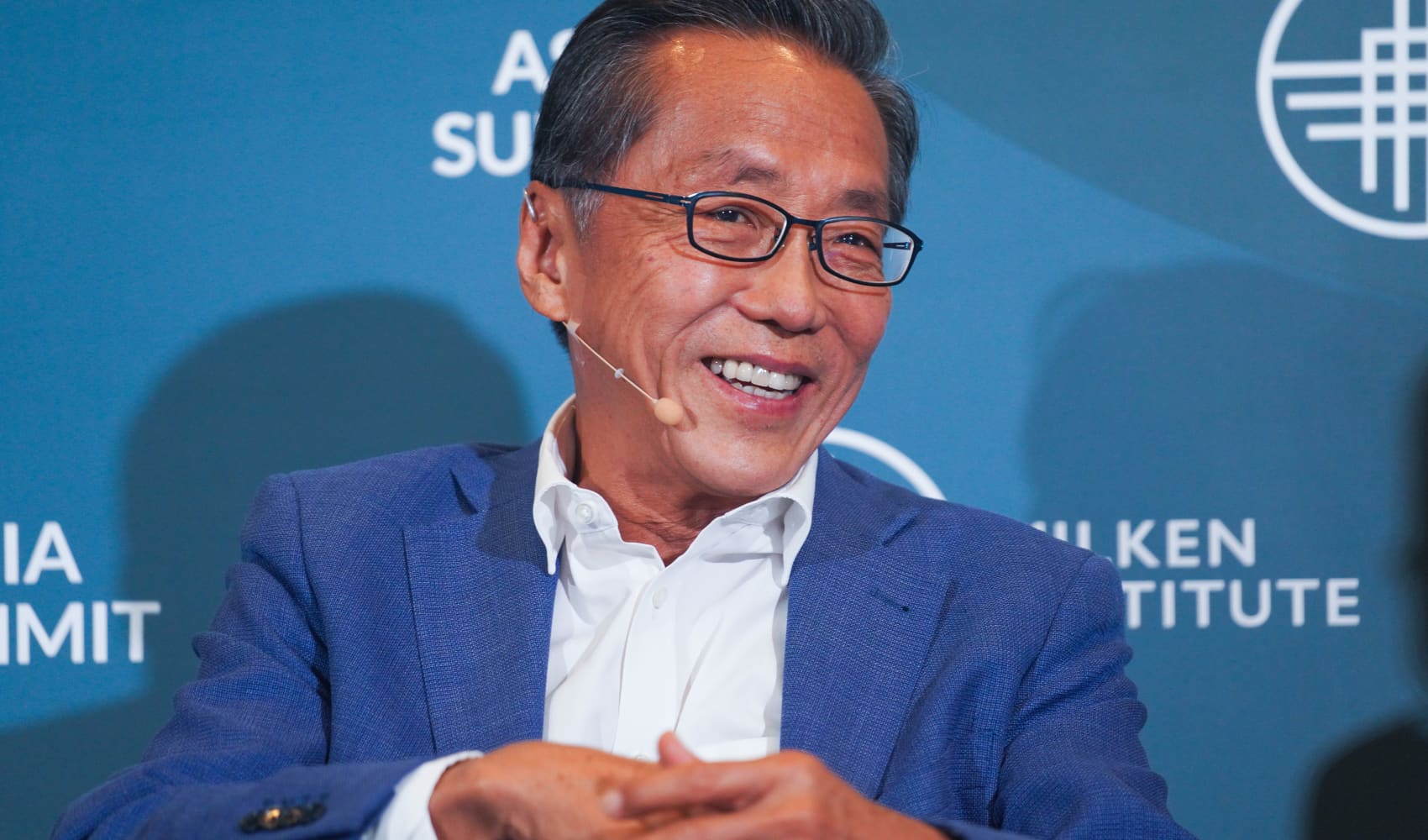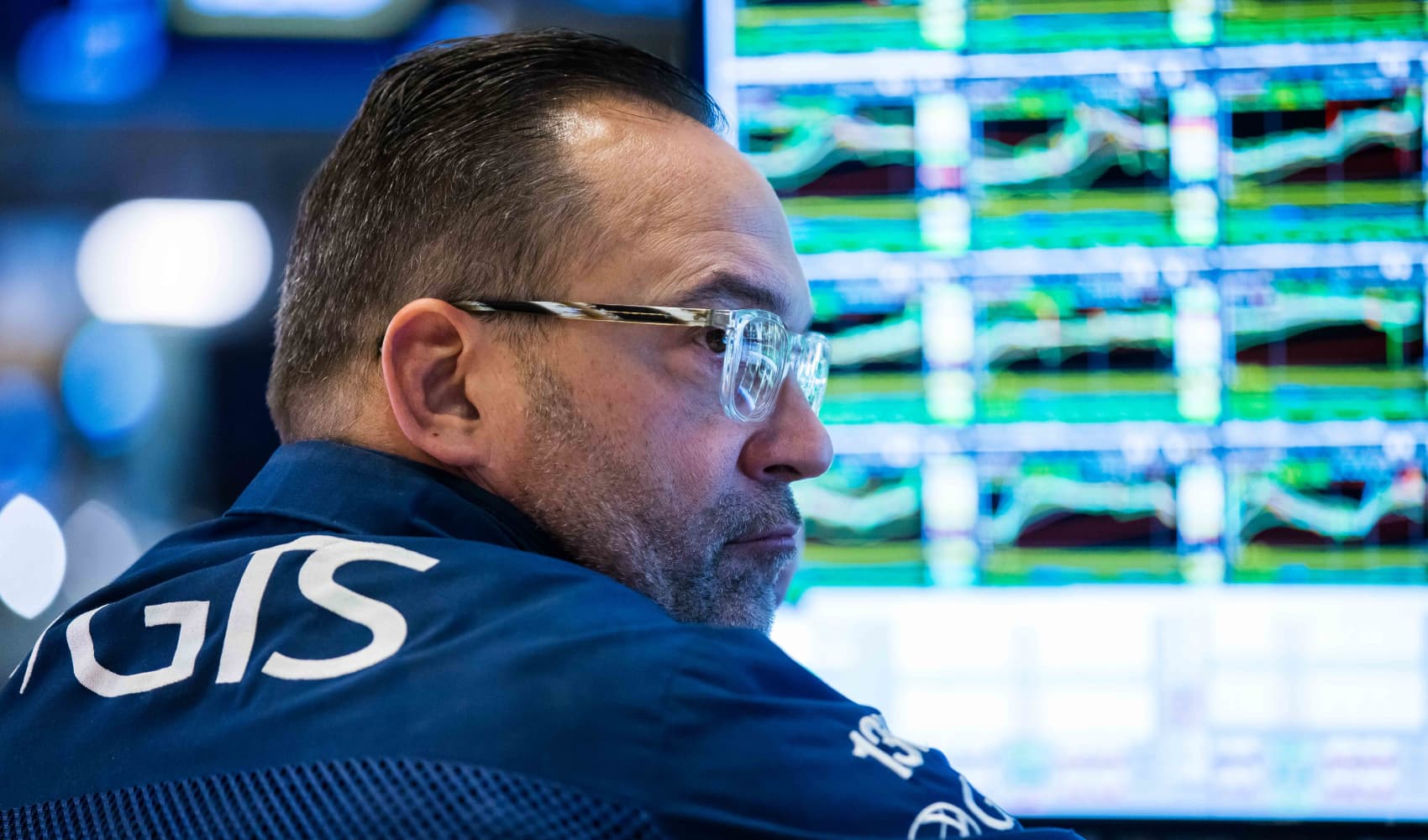
Civilian participants in a Kyiv Territorial Defence unit train on a Saturday in a forest on January 22, 2022 in Kyiv, Ukraine.
- The West should be aware of showing any "weakness" when it comes to dealing with geopolitical crises like the current hostility between Ukraine and Russia, according to Kyiv's Wladimir Klitschko.
- Ukraine is on high alert over a possible military confrontation with Russia, which has amassed tens of thousands of troops.
Russia needs to understand how strong Ukraine is, and what price it might pay for launching any military aggression toward Ukraine, Kyiv's mayor told CNBC.
"Before our enemies make an attack against Ukraine they have to see we are strong, they have to see how strong we will be, it will be a very painful price for everyone," Vitali Klitschko told CNBC's Hadley Gamble in Kyiv on Wednesday.
Klitschko said that Ukraine had a young democracy and a vision "to build" a European country, a vision rejected by Russia. Still, he said financial and political support, as well as support in the shape of military hardware and weapons, made Ukraine stronger.
He said he hoped diplomats both in Ukraine and elsewhere could "stop this aggression [in a] diplomatic way. If not, we have to prepare to take weapons in our hands," the former world champion boxer said.
Vitali's brother Wladimir Klitschko, another former boxer who now describes himself as an activist, also spoke to reporters Wednesday, commenting that the West should be aware of showing any "weakness" when it comes to dealing with geopolitical crises like the current hostility between Ukraine and Russia.
Asked if the U.S. is doing enough to help Ukraine as it faces a possible military confrontation with Russia, Wladimir Klitschko said "there's never enough."
Money Report
"I believe that sometimes the West shows weakness in certain situations and that we need to be more united and protect each other and protect our interests, protect our democracy that we've been fighting for and developing in the Western world," he said.
"I believe this unity will give us enormous strength," he added, noting that there should be better communication between Western allies, and that a possible invasion of Ukraine "would be an issue for everybody."
With Ukraine on high alert over a possible military confrontation with Russia, which has amassed tens of thousands of troops along the border with its neighbor, some Ukrainian officials have been critical of Kyiv being left out of high-level diplomatic talks between the U.S., NATO and Russia aimed at averting a confrontation.
Vitali Klitschko has been publicly critical of the response of one of Ukraine's European allies, Germany, describing Berlin's offer of 5,000 helmets to Ukraine as "a joke" which had left him "speechless."
"The behavior of the German government leaves me speechless. The defense ministry apparently hasn't realized that we are confronted with perfectly equipped Russian forces that can start another invasion of Ukraine at any time," he told the German newspaper Bild last Wednesday. "What kind of support will Germany send next?" he asked. "Pillows?"
Speaking to reporters Wednesday following a press conference, Vitali Klitschko said Ukraine had to now "be prepared for any scenario" as there were no immediate signs of tensions being dialed down, despite diplomatic talks continuing in the background between Russian officials, including President Vladimir Putin, and Western leaders.
He said there was little appetite in Ukraine for more bloodshed — particularly given the deaths of over 13,000 people in east Ukraine in an ongoing conflict between Ukrainian troops and pro-Russian separatists in the Donbas region — but added, "we have to defend our country."
Asked how worried he was about the damage the crisis was doing to Ukraine's economy, which is beset with inflation (the rate stood at 10% in December), Kyiv's mayor conceded that "it's touched everyone in Ukraine and so yes, of course it's hard for Ukraine and for our economy. But right now the question, [is about the] integrity and independence of our country.
Competing interests
Ukraine is not a member of NATO nor the EU, but has a pro-Western government. Russia insists it has no plans to invade Ukraine but it has already annexed a part of its territory, Crimea, in 2014, and supports two pro-Russian, self-proclaimed republics in the Donbas region in eastern Ukraine.
NATO is not obliged to defend Ukraine but it has beefed up its deployments in eastern Europe in case of a possible attack. Some countries, including the U.S. and U.K., have sent military hardware to Ukraine to help it defend itself but others, like France and Germany, are looking at talks with Russia and Ukraine in an attempt to break an impasse over what is largely seen as a battle over geopolitical influence between Russia and the West, with Ukraine in the middle.
Russia has repeatedly said it wants to defend its own security interests in the face of what it views as an expansion of Western military might (that is, NATO) on its doorstep in Europe and, particularly, in eastern Europe where missile defense systems are positioned in Romania and Poland.
It has demanded that Ukraine is never allowed to join NATO, and that the military alliance rolls back its deployments in eastern Europe. The U.S. has refused those demands but says there is space for further dialog.
On Tuesday, Putin accused Western nations of ignoring key Russian security concerns and said that the U.S. wanted to "contain Russia" and that it was using Ukraine to do that.
He also reiterated Moscow's position that any possible membership of Ukraine in NATO would "undermine Russia's security."
"Let's imagine that Ukraine is a NATO member, it is fully packed of weapons, it gets advanced attack means like those in Poland and Romania and it starts an operation in Crimea," Putin said, describing Crimea, a part of Ukraine annexed by Russia in 2014, as a "sovereign Russian territory."
"Let's imagine that Ukraine is a NATO member state and it initiates a military operation. What should we do then, [should we] fight against the NATO bloc? Did anyone think at least something about that? Apparently not."
In Kyiv on Tuesday, meanwhile, Ukraine's President Volodymyr Zelenskyy warned that any military confrontation with its neighbor Russia would amount to "a full-scale" war.
Speaking after a meeting with U.K. Prime Minister Boris Johnson, Zelenskyy said that any conflict with Russia would affect the whole of Europe.
"There will be, unfortunately, a tragedy if the escalation against our state begins. That is why I openly say: This will not be a war between Ukraine and Russia — this will be a war in Europe, full-scale war, because no one will give up their territories and people anymore," the president said, speaking to reporters at a press conference with Johnson.
Correction: This story has been updated to correct the name of Wladimir Klitschko.



